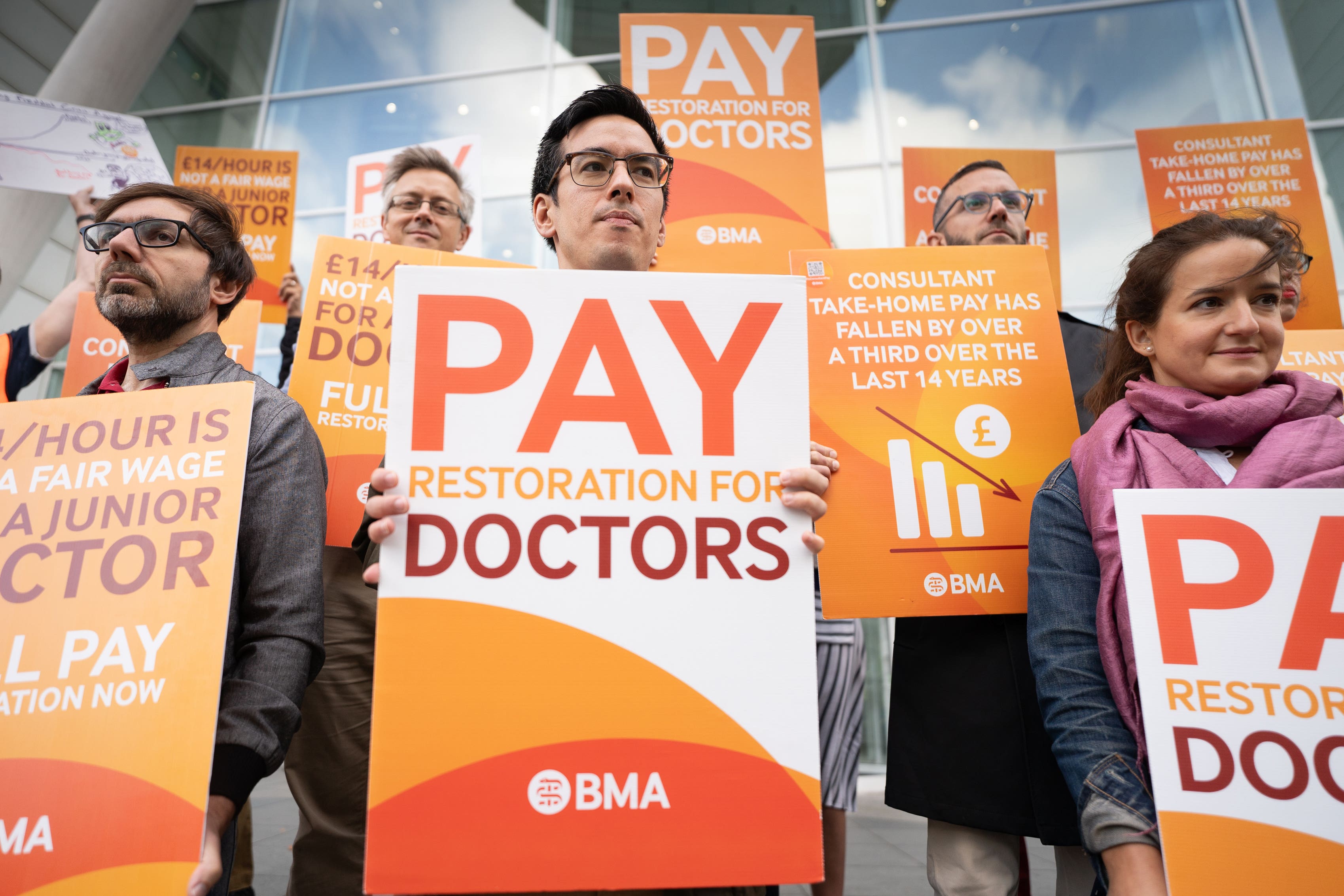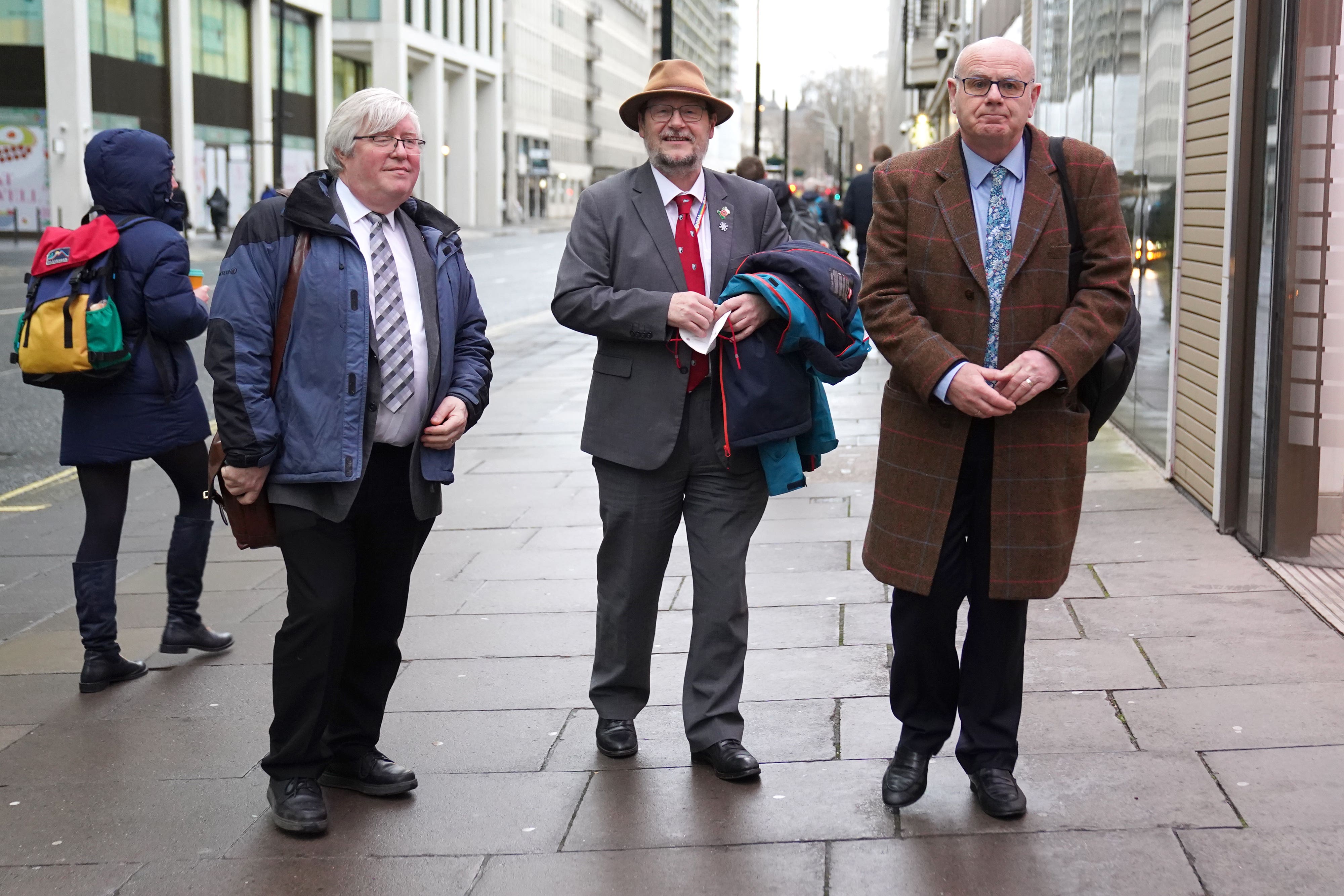Doctors’ strikes row escalates as NHS leaders claim walkouts are harming patients
NHS leaders warn hospitals have struggled to maintain safe staffing during doctors’ strikes
Your support helps us to tell the story
From reproductive rights to climate change to Big Tech, The Independent is on the ground when the story is developing. Whether it's investigating the financials of Elon Musk's pro-Trump PAC or producing our latest documentary, 'The A Word', which shines a light on the American women fighting for reproductive rights, we know how important it is to parse out the facts from the messaging.
At such a critical moment in US history, we need reporters on the ground. Your donation allows us to keep sending journalists to speak to both sides of the story.
The Independent is trusted by Americans across the entire political spectrum. And unlike many other quality news outlets, we choose not to lock Americans out of our reporting and analysis with paywalls. We believe quality journalism should be available to everyone, paid for by those who can afford it.
Your support makes all the difference.Health leaders have launched an extraordinary attack on the UK’s doctors’ union claiming NHS strikes are harming patients.
The NHS’ most senior leaders have written to the British Medical Association warning that continued strike action by doctors is now harming hospitals’ ability to treat patients needing heart and cancer surgery.
The letter, sent on Tuesday by four NHS England directors including medical director Stephen Powis and chief Nurse Ruth May also said women’s Caesarean sections have been delayed due to strike action.
The news comes on the last day of a three-day strike by both junior doctors and consultants – the longest joint walkout in NHS history.
Hitting back at NHS leaders, Dr Phillip Banfield, chair of the BMA, said on Wednesday the NHS should not have booked in operations in the days leading up to strikes to ensure the service was better prepared to cope during the mass walkout.
Despite the record-high waiting lists, the British Medical Association (BMA) said that hospitals “have not been appropriately rescheduling non-urgent elective activity in the days leading up to and during strike action”.
The union claims this affected the service’s ability to prioritise urgent cases.
In an internal briefing previously leaked to The Independent, NHS England claimed the BMA had not acknowledged NHS safety concerns during the last round of strikes.
The note also said, “damage done to relationships between [NHS] regions and the BMA may take some time to recover from”.
The Independent understands a number of local NHS leaders have also sent letters to BMA representatives during the last strike action over their safety concerns.
Now, the row has escalated as NHS England told the BMA: “We are increasingly concerned that the cumulative impact of this action is causing significant disruption and risk to patients.“We are extremely concerned that Christmas Day cover is insufficient to ensure appropriate levels of patient safety are being maintained across local health systems.”
They warned that the Christmas Day level of staffing levels was leading to problems in emergency care and affecting the NHS’s ability to manage urgent cases.

“We are becoming increasingly concerned that combined periods of industrial action are impacting on our ability to manage individuals who require time-sensitive urgent treatment, for example cardiac, cancer or cardiovascular patients, or women needing urgent caesarean sections,” the letter states.
“Although we recognise that consultants have been giving six weeks’ notice of industrial action, we are anxious this in itself is not sufficient to appropriately maintain safe care for these patients,” they added.
NHS officials have called for more talks with the BMA to discuss how to strengthen patient safety during walkouts.
On Tuesday, the BMA’s consultants committee told ministers they will not call any more strikes for four weeks if the government agrees to talks.
A letter of response to the NHS, from Professor Philip Banfield, chairman of the council at the BMA, said that the union was “committed to ensuring that patients are safe during strikes”.

Dr Banfield wrote: “Unfortunately, reports from around the country show that trusts have not been appropriately rescheduling non-urgent elective activity in the days leading up to and during strike action - directly impacting on the ability of the wider service to prioritise more urgent cases.”
During this week’s three-day walk-out, which ends at 7am on Thursday, medics are providing only emergency care.
Dr Banfield added: “There is clear evidence of the failure by some trusts to adequately prepare for industrial action. In particular, the BMA is aware that some trusts have continued with significant amounts of elective activity during industrial action and have failed to reschedule non-urgent elective care in an attempt to meet political targets. This is causing unnecessary risk of harm.”
The walkouts come as 7.68 million people in England are waiting to start routine hospital treatment.
According to the most recent data, over a million patients have had their procedures or appointments postponed due to NHS strikes in the past year.




Join our commenting forum
Join thought-provoking conversations, follow other Independent readers and see their replies
0Comments